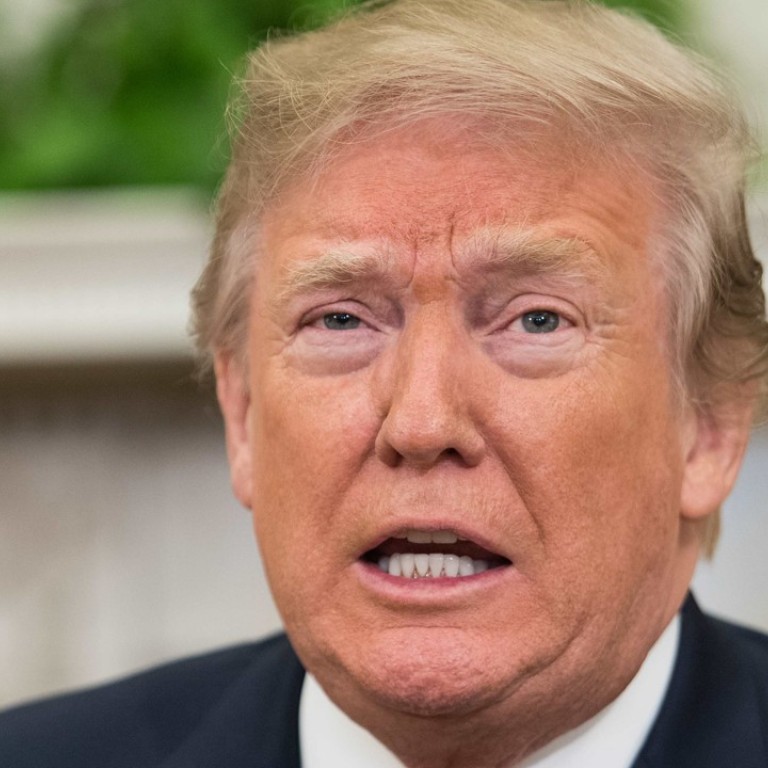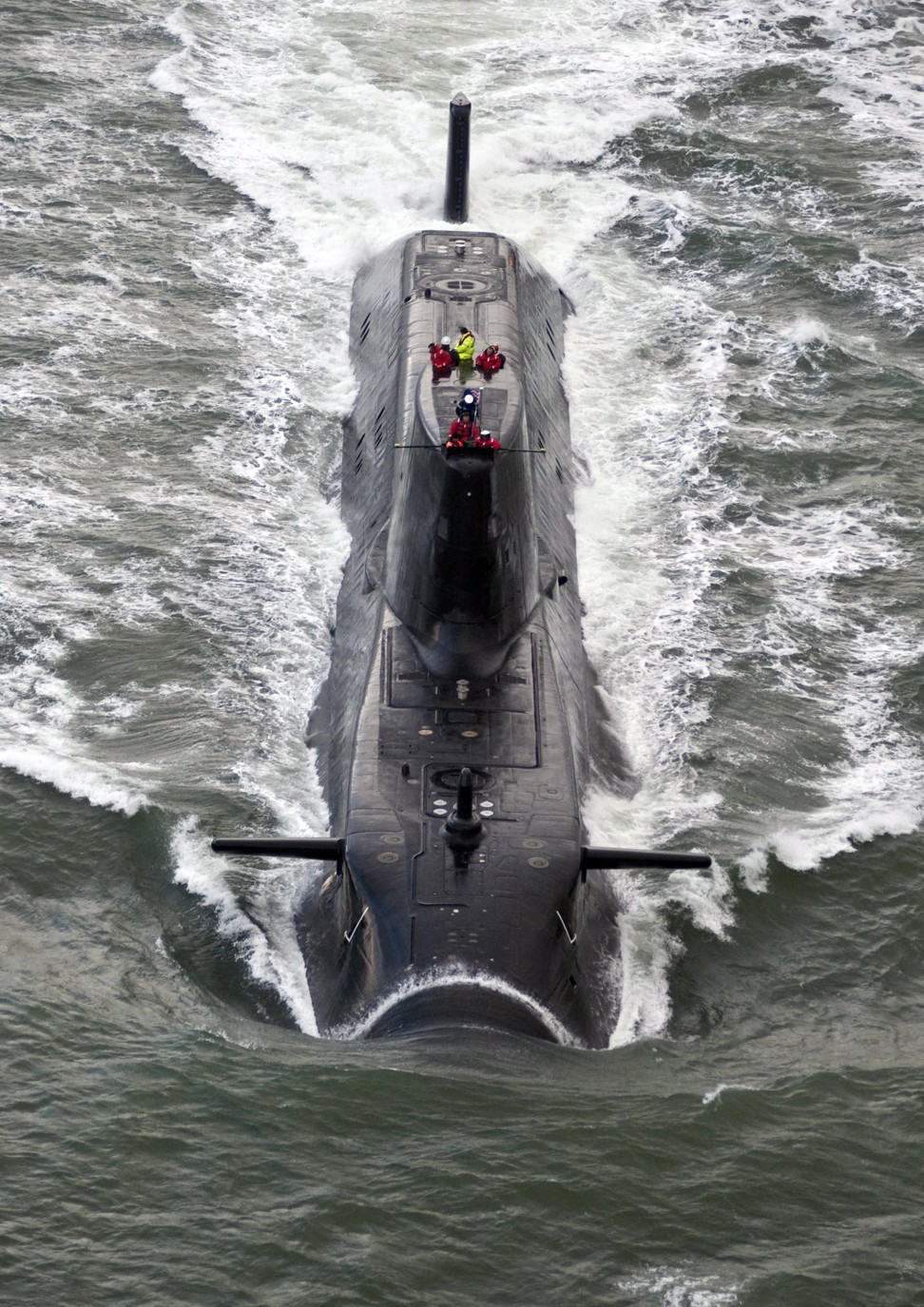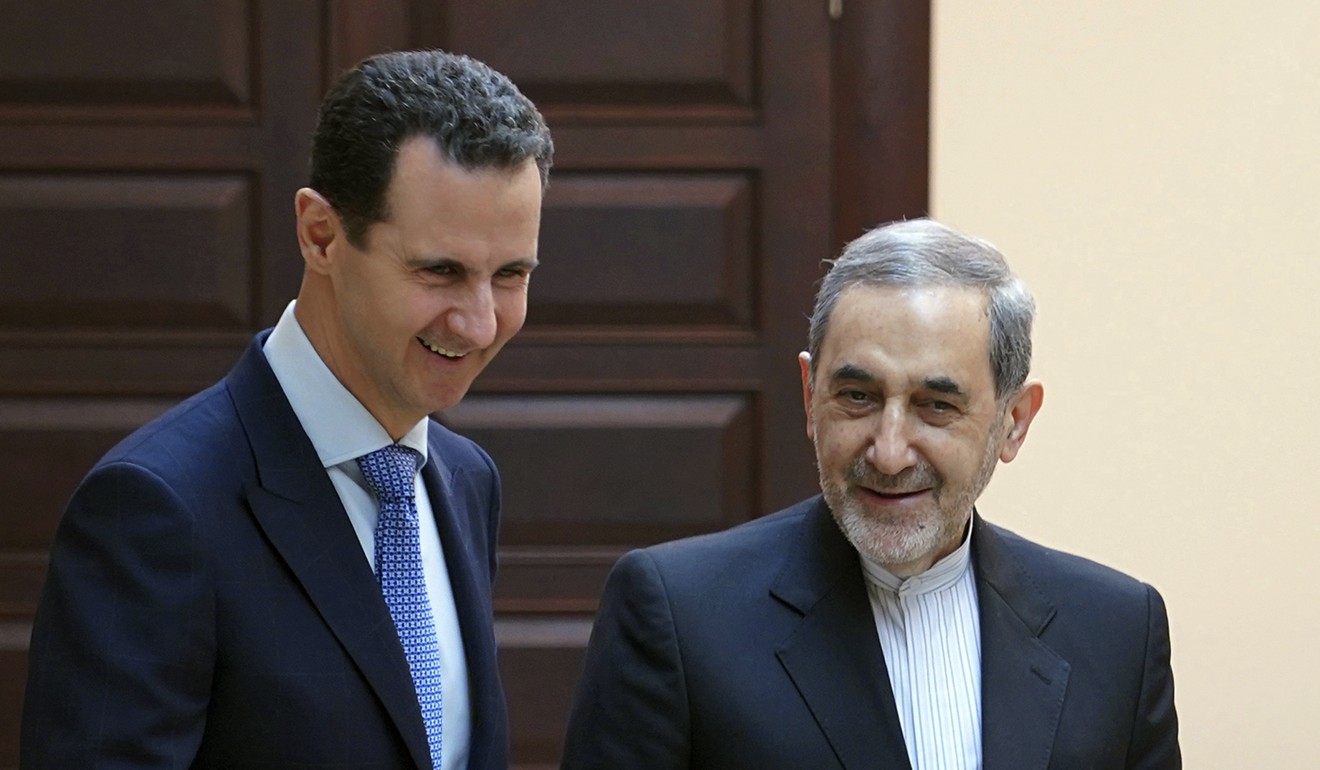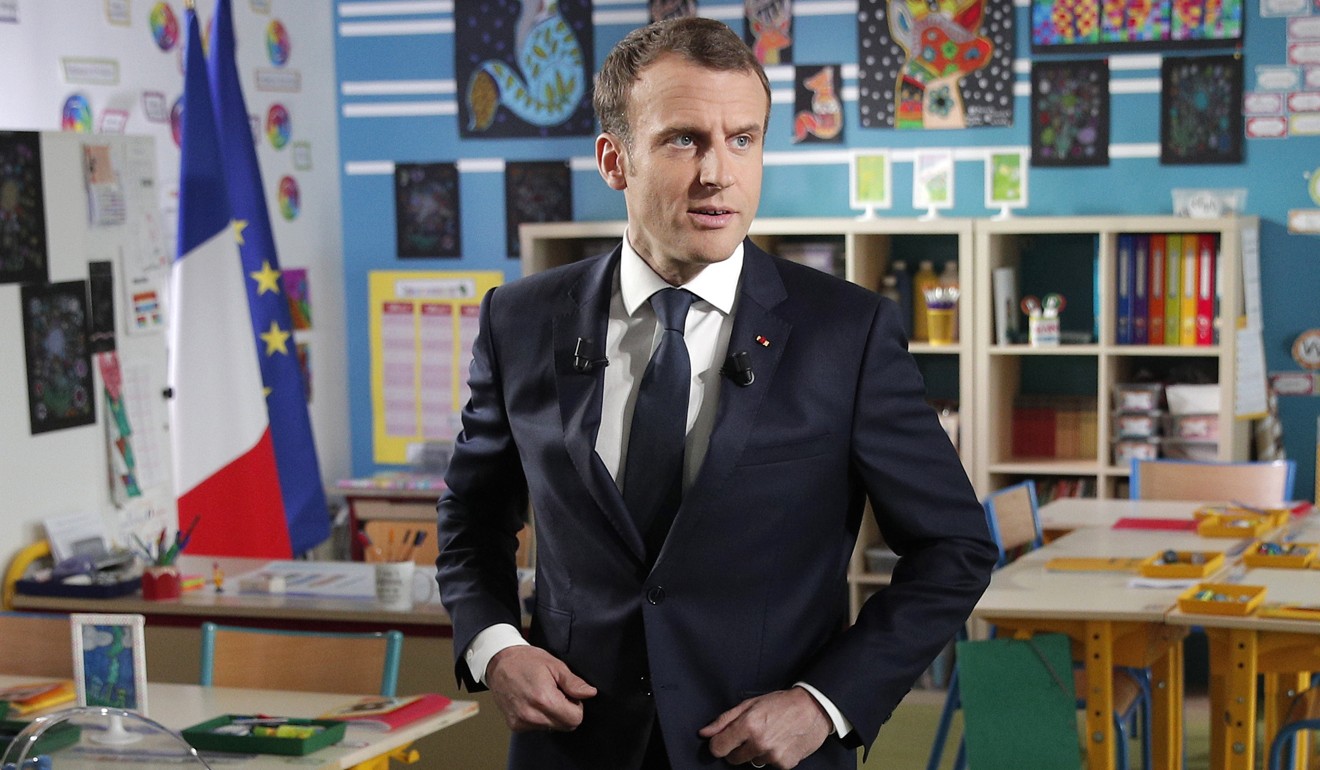
US President Trump backs off from immediate missile attack on Syria, says it could happen ‘very soon or not so soon at all!’
His latest Twitter tirade came after Syrian President Bashar al-Assad warned that threats of Western military action would only lead to further chaos in the region
President Donald Trump was evasive on Thursday about when the United States might attack Syria in retaliation for a chemical weapons assault, saying it could be “very soon or not so soon at all!”
Using another acronym for Islamic State, he added: “In any event, the United States, under my Administration, has done a great job of ridding the region of ISIS. Where is our “Thank you America?”
The president’s more cryptic approach came after Syrian President Bashar al-Assad warned that threats of Western military action in response to Saturday’s alleged chemical attack would only lead to further chaos in the region.

“With every victory on the ground, some Western countries raise their voices and intensify their activities in an effort to change the trajectory of events,” said Assad.
“These voices, and any possible actions, will only contribute to further destabilisation in the region,” he said in comments posted on the Syrian presidency’s social media accounts.
Assad spoke during a meeting with Ali Akbar Velayati, foreign policy advisor to Iran’s supreme leader Ayatollah Ali Khamenei, and other officials.
Assad and Velayati criticised Western threats to carry out strikes on Syria in response to the alleged use of toxic weapons at the weekend, the presidency said.

Western allies, including the US, UK and France, have blamed the Syrian government for an attack in the town of Douma on Saturday, which activists and rescuers say involved chemical weapons and killed 40 people.
“The threats of some Western countries to attack Syria is based on lies that these countries fabricated along with terrorist organisations,” Assad’s office said.
Syrian troops, meanwhile, have braced for Western strikes across the country, hiding assets and deserting key buildings.
A potential attack was looming on Thursday, with US President Donald Trump mulling over military options and British Prime Minister Theresa May holding an emergency cabinet meeting.
French President Emmanuel Macron, meanwhile, said he had “proof” that the Syrian president’s regime had used chemical weapons and would announce his response “in due course”.

“We have proof that chemical weapons were used last week, at least chlorine, and that they were used by the regime of Bashar al-Assad,” Macron said during an interview on France’s TF1 television.
Macron added that he was in daily contact with Trump and said “we will have decisions to take in due course, when we judge it to be the most useful and the most effective”.
The French leader, who had made the use of chemical weapons in Syria a “red line”, said one of his aims in Syria was to “remove the regime’s chemical attack capabilities”.
But he repeated that he wanted to also avoid “an escalation”.
“France will in no way allow an escalation or anything that would harm regional stability, but we cannot allow regimes that believe they can act with impunity to violate international law in the worst possible way.”

.png?itok=arIb17P0)